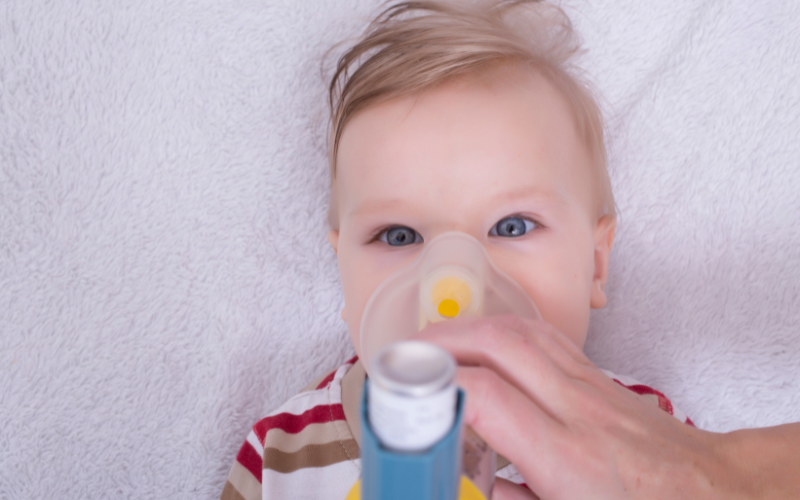Search
Showing results for "early lung health"
Research
PCV10 elicits Protein D IgG responses in Papua New Guinean children but has no impact on NTHi carriage in the first two years of lifeNasopharyngeal colonisation with nontypeable Haemophilus influenzae (NTHi) is associated with development of infections including pneumonia and otitis media. The 10-valent pneumococcal conjugate vaccine (PCV10) uses NTHi Protein D (PD) as a carrier. Papua New Guinean children have exceptionally early and dense NTHi carriage, and high rates of NTHi-associated disease.

News & Events
Unravelling the mystery of persistent wheeze in children: Study reveals crucial immune cell differencesThe study found the rare immune cells, known as plasmacytoid dendritic cells, showed clear signs of activation and virus defence in children with transient wheeze, whereas in children with persistent wheeze the same immune cells showed very limited activation without any signs of virus defence.
Research
Preoperative identification of children at high risk of obstructive sleep apneaObstructive sleep apnea poses as an anesthetic challenge, and it is a well-known risk factor for perioperative adverse events
Research
An infant mouse model of influenza-driven nontypeable Haemophilus influenzae colonization and acute otitis media suitable for preclinical testing of novel therapiesNontypeable Haemophilus influenzae (NTHi) is a major otitis media (OM) pathogen, with colonization a prerequisite for disease development. Most acute OM is in children <5 years old, with recurrent and chronic OM impacting hearing and learning. Therapies to prevent NTHi colonization and/or disease are needed, especially for young children. Respiratory viruses are implicated in driving the development of bacterial OM in children.
Research
Characterization of “bystander” effects of the diphtheria-pertussis-tetanus (DTP) vaccine on the IgE systemWe are seeking more detailed information on how the immune system of infants responds to the vaccine, with the aim of identifying which aspects of the immune r

News & Events
Biobank funding supports valuable research resourcesFour The Kids Research Institute Australia-based biobanks which underpin a range of cancer, respiratory and early life research have received more than $450,000 in funding.
Research
Vitamin D in fetal development: Findings from a birth cohort studyBirth cohort studies provide an invaluable resource for studies of the influence of the fetal environment on health in later life.
Research
Difficult intubation in syndromic versus nonsyndromic forms of micrognathia in childrenWe investigated how syndromic versus nonsyndromic forms of micrognathia impacted difficult intubation outcomes in children. Primary outcome was the first-attempt success rate of tracheal intubation, secondary outcomes were number of intubation attempts and complications. We hypothesized that syndromic micrognathia would be associated with lower first-attempt success rate.
Research
Patient positioning and its impact on perioperative outcomes in children: A narrative reviewPatient positioning interacts with a number of body systems and can impact clinically important perioperative outcomes. In this educational review, we present the available evidence on the impact that patient positioning can have in the pediatric perioperative setting. A literature search was conducted using search terms that focused on pediatric perioperative outcomes prioritized by contemporary research in this area.
Research
Impact of a revised postoperative care plan on pain and recovery trajectory following pediatric tonsillectomyA previous cohort of adenotonsillectomy patients at our institution demonstrated moderate-severe post-tonsillectomy pain scores lasting a median (range) duration of 6 (0-23) days and postdischarge nausea and vomiting affecting 8% of children on day 1 following surgery. In this subsequent cohort, we evaluate the impact of changes to our discharge medication and parental education on post-tonsillectomy pain and recovery profile.
